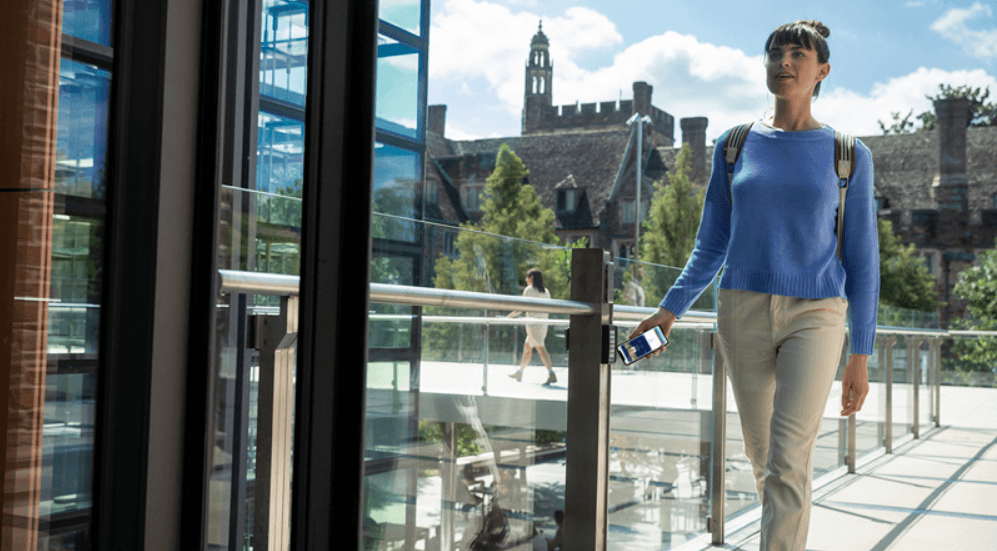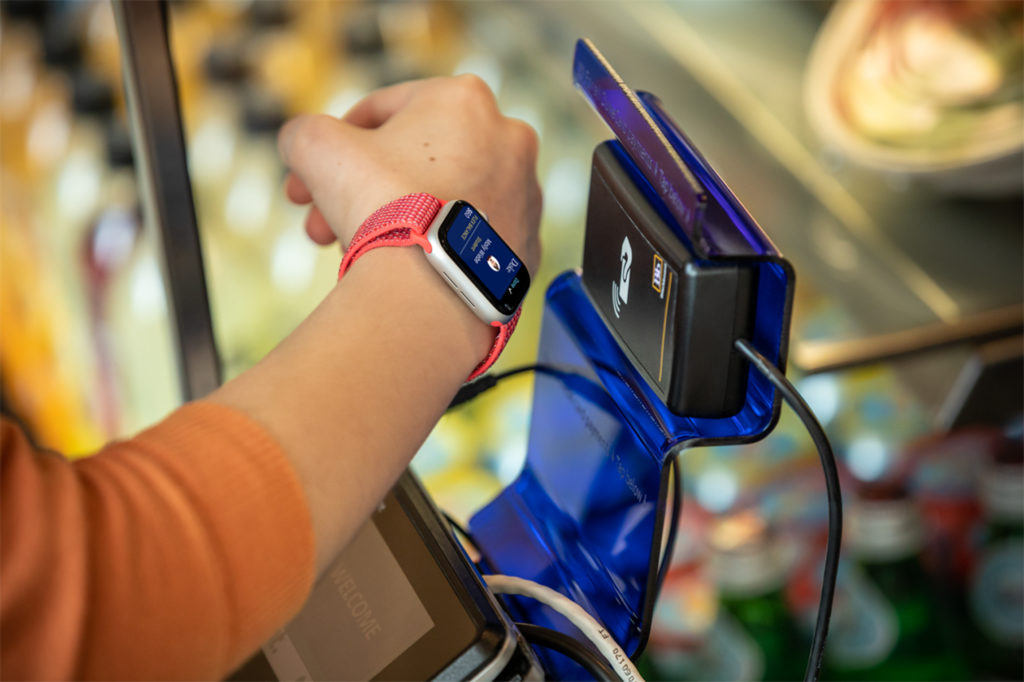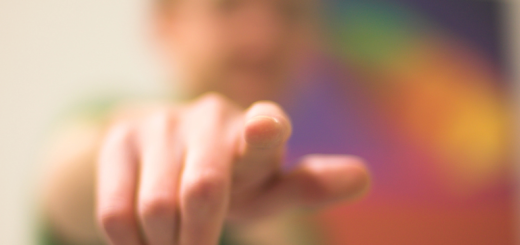Apple just took another step toward iPhone as ID

A student uses her iPhone to enter secured university premises.
Yet another U.S. University has begun supporting use of iPhones and the Apple Watch as student ID and students at Marshall University are the latest to benefit as Apple inexorably becomes your ID.
If it works here, it works anywhere
The Huntington, West Virginia university has introduced school-issued identification cardson iPhone and Apple Watch.
The university is one of now ten in the U.S. to offer support for Apple’s student ID system. Students, faculty and staff signed up the system can use their watch to handle lots of tasks they once required conventional ID to handle:
- Access buildings on campus, including residence halls and libraries.
- Hit the gym in the recreation center.
- Pay for meals.
- Buy items in the university bookstore.
- Purchase items from vending machines across campus.
- Use on-campus print facilities.

A slow but sure deployment
Apple began offering this system in October 2018 when it made it available across Duke University and the Universities of Alabama and Oklahoma. Johns Hopkins, Santa Clara and Temple Universities began offering the system later that year.
“iPhone and Apple Watch have brought us into a new era of mobility, helping to transform everyday experiences,” said Jennifer Bailey, Apple’s vice president of Internet Services at that time.
“When we launched Apple Pay, we embarked on a goal to replace the physical wallet. By adding transit, loyalty cards and contactless ticketing we have expanded the capabilities of Wallet beyond payments, and we’re now thrilled to be working with campuses on adding contactless student ID cards to bring customers even more easy, convenient and secure experiences.”
How the system works
To use this system students must load their Marshall Mobile ID cards to their Apple Wallet,after which it can be used on any Apple device that supports the system. Once they have, they just need to swipe their device on the card reader to get what they need.
Where we are going
I urge you not to underestimate the importance of this.
You see, as I see it, Apple is creating proof points that illustrate the robust security of its systems by enabling their use in real world secure situations, such as at university.
This gives it a strong case from which to argue that its devices can be used to replace other forms of identification, and these will inevitably eventually include things like driving licenses and passports.
Please follow me on Twitter, or join me in the AppleHolic’s bar & grill and Apple Discussions groups on MeWe.




